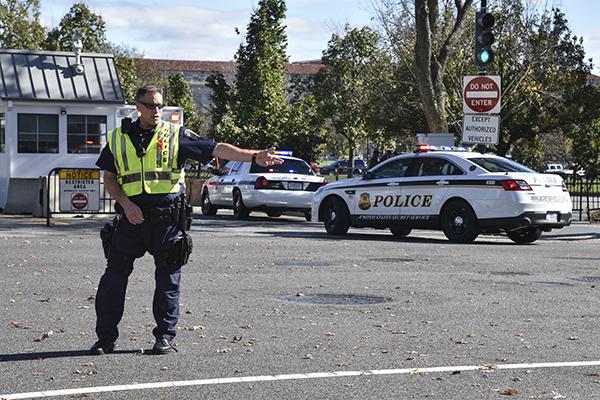Updated: Nov. 19, 2015 at 8:42 a.m.
Almost a week after terrorists carried out six coordinated attacks in Paris, District officials have announced precautionary security upgrades.
City agencies have announced they are increasing their security presence around the city in an effort to help relieve concerns that D.C. could be the next city attacked. The attacks in Paris are the worst in a European city since 2004, killing 129 people and injuring hundreds of others, The New York Times reported.
The Metropolitan Police Department released a statement last week saying that MPD Chief Cathy Lanier immediately sent additional forces to protect high-profile locations and French-owned sites.
Lanier released a statement Saturday saying MPD is working with other law enforcement agencies in the region, adding that the city will increase its police presence “conspicuously” around the city. She added that D.C. residents should use the attacks as a reminder to report suspicious behavior as soon as possible.
“We must always remember that Washington will always be an attractive target to those wishing to do harm to us,” she said in the statement. “Simply reporting a suspicious activity, however small, may be the linchpin in disrupting a pending attack before it can be acted upon.”
Senior Associate Vice President for Safety and Security Darrell Darnell said in a statement this week that GW will continue its regular safety procedures after the Paris attacks. The men’s basketball game against the University of Virginia did involve heightened security, including bag checks, according to a University statement.
An unverified video was released on social media on Monday which targeted D.C. with a similar attack. The video’s creators claimed to be aligned with the Islamic State group, militants of which are the alleged perpetrators of the attacks in Paris, but GW released a statement that afternoon saying it was “not a credible threat.”
Representatives from the D.C. Homeland Security and Emergency Management Agency and D.C. Mayor Muriel Bowser’s office did not respond to requests for comment.
Metro Transit Police Chief Ronald Pavlik announced at a press conference Monday that the agency will increase the frequency of random bag searches, explosive screenings and K-9 sweeps. He said that the more focused strategy is out of an “abundance of caution.”
“Although there is no credible threat here in the United States, we can’t turn a blind eye to the events that occurred in Paris,” Pavlik said.
Pavlik said that the Metro will take on a “layered approach” to the increased security as opposed to MPD’s “all-hands-on-deck” strategy. He said the officers will conduct the searches along with Transportation Security Administration agents, swabbing bags and then swabbing inside machines that detect explosives. He said the process would not be intrusive, but could cause delays.
“If our riders feel they have been delayed, that is sometimes the price we pay for security,” Pavlik said.
Matthew Levinger, a research professor of international affairs and the program director for GW’s National Security Studies Program, said people in the United States should not be so afraid of terrorist attacks that it interferes with their daily lives.
“It’s certainly understandable and quite reasonable to be nervous,” he said. “I think it’s important for us to continue doing the things that are important in our lives and not give in to fear.”
Kendrick Chang contributed reporting.







